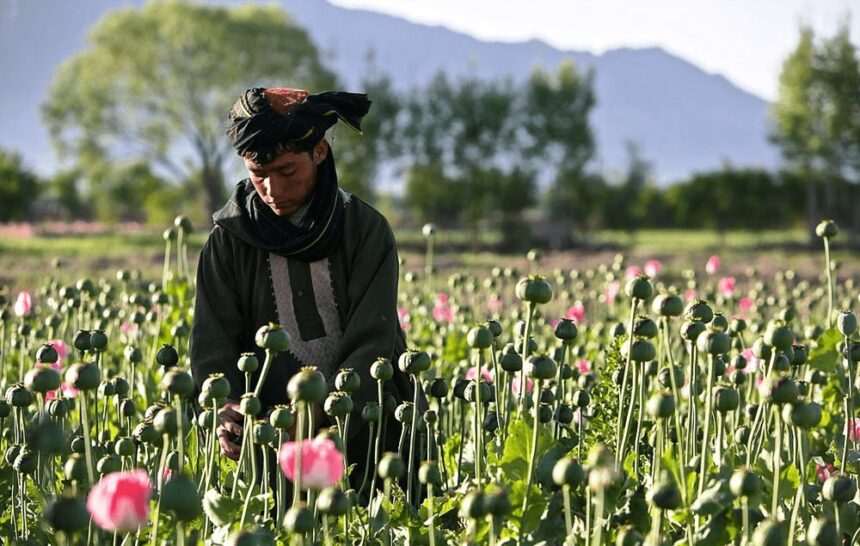RASC News Agency: The United Nations Office on Drugs and Crime (UNODC), in its latest report released on Thursday, has once again underscored Afghanistan’s central role in the global narcotics trade a position that has only deepened under Taliban rule. The report warns that heroin trafficking from Afghanistan, particularly via the “Northern Route” into Central Asia and Russia, is generating an estimated $10 billion in gross annual revenue, fueling black markets and criminal syndicates across the region. Drawing on data collected from 2022 and 2023, the report reaffirms that Afghanistan remains one of the world’s largest producers of illicit opiates, especially heroin. Despite Taliban claims of having eradicated poppy cultivation, independent assessments, satellite imagery, and field reports continue to contradict these assertions. In reality, the narcotics economy not only persists it thrives, entrenched in the Taliban’s political and economic networks.
“The Taliban’s so-called poppy ban is largely performative,” one Western counter-narcotics expert told sources. “There is no meaningful enforcement, and many Taliban officials directly profit from the trafficking.” The report indicates that in 2021 alone coinciding with the Taliban’s return to power Afghanistan’s potential opiate exports were valued at between $1.7 billion and $2.6 billion. These staggering numbers illustrate the scale of an economy that has become a cornerstone of Taliban survival. Farmers, faced with extreme poverty and no viable alternatives, continue cultivating poppies. Traffickers operate with impunity. And Taliban affiliates, far from curbing the trade, are reported to be taxing, protecting, and even facilitating it.
The UNODC highlights that this heroin-driven economy has not only intensified Afghanistan’s internal fragility, but has also become a global threat. In 2023, an estimated 316 million people worldwide consumed at least one illicit substance with a significant portion of heroin traced back to Afghanistani sources. Within Afghanistan itself, addiction is spreading rapidly, especially among women, many of whom begin using opium for untreated health conditions, while men frequently initiate use through cannabis. The Taliban regime, while publicly boasting of narcotics crackdowns, has restricted access to addiction treatment programs and severely constrained the operations of independent health organizations. The regime’s narrative of “zero cultivation” is consistently challenged by evidence from international watchdogs, which point to a geographical shift in poppy fields moving from visible zones to remote areas under Taliban protection.
“This is not eradication it is consolidation,” noted one regional analyst. “The Taliban are centralizing and profiting from the trade.” In conclusion, the UNODC warns that as long as the Taliban remain in power, Afghanistan will remain structurally dependent on the narcotics economy. This dependence not only undermines regional stability but also entrenches criminal networks across Asia and Europe. The report urges the international community to recognize that the fight against drug trafficking in the region cannot succeed under a regime that is both complicit and invested in its continuation.
Until genuine political reform and governance return to Afghanistan, the country will remain, in the words of the United Nations, “the beating heart of the global heroin economy.”






